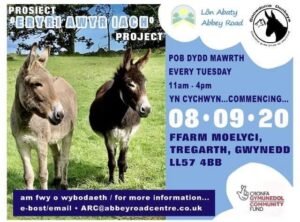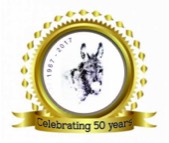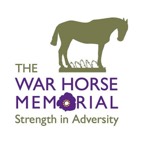Reports
Online donkey shows
I’ve been entering my donkeys into online photo/video shows on social media on and off for the last 5 years. There seems to have been a large number of online horse shows for quite some time, and (providing you check with the organiser) many are more than happy to have donkey entries alongside their horse and pony competitors, depending upon the class requirements.
Recently though, over the last year I have noticed things pick up for our long eared friends, with many shows having a specific donkey class or two! In addition to this, there have even been a few dedicated online donkey shows run by several different organisations. Some of these have helped to raise funds for donkey charities and organisations as well. Especially in current times, where travelling restrictions and social distancing guidelines have been in place, and with many events being cancelled entirely, these online shows have definitely helped to sustain the fun of donkey showing.
From my own experience of travelling to show events, the donkey community has always been incredibly supportive, friendly and welcoming. We even managed to win a few ribbons. But it can be difficult to manage the time needed to attend these shows, often being mid-week and requiring long journeys to get there. It can be very stressful arranging transport, ensuring a safe journey, keeping everyone fed and looking smart, remembering all your necessities, and then hoping everything goes to plan once in the ring! As we all know, sometimes a donkey just doesn’t want to play ball and I recall many occasions of donkeys not getting in a trot, refusing to walk on and even rolling in the show ring!

So these online showing opportunities are a great way of getting involved in showing without the stress. You can prep your donkeys in your own time, get a few shots of them in action or looking smart without the extra hassle and expense. Online shows do have a small entry fee, but compared to the cost of travel and possibly even accommodation, it’s a much more accessible way of showing off your donkeys and enjoying the fun of a show. I highly recommend giving it a go; all donkeys can enter (including those that may otherwise not be able to participate or travel), so nobody needs to miss out. Classes range from more formal condition and turnout, ridden and working donkeys, to fun and light hearted classes, such as ‘best friends’, ‘make us smile’, and agility.
Attending traditional donkey shows in the past has been a great experience, especially meeting and chatting to other donkey enthusiasts. It’s definitely worth attending a few, even just as a spectator or helping hand. If you can’t attend, don’t feel ready to go to shows, or at times like the present when events are not running, the world of online showing is a fantastically simple way of still engaging in the community and enjoying your passion for these amazing animals. And there is no chance of you all getting soaked by the rain!
Giselle Laverack
Regional Wales Delegate
Ruth Stronge 07817 507413 ruthstronge@btinternet.com
North Wales Representative
Ruth Stronge 07817 507413 ruthstronge@btinternet.com
South/West Representative
Vacant



